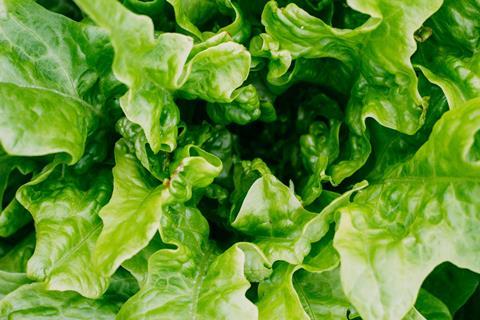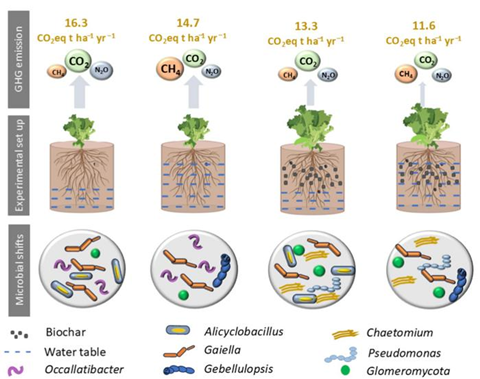Raising groundwater levels and adding biochar to agricultural peat soils could dramatically cut greenhouse gas emissions while maintaining healthy crop production, according to a new study from Bangor University.

The study, published in Biochar (2025), tested how water table management and biochar, a charcoal-like soil additive made from plant biomass, affect carbon dioxide, methane, and nitrous oxide emissions in peat-based farming systems. Although drained peats are among the world’s most productive soils, they are also major contributors to global warming due to carbon loss and subsidence when cultivated.
READ MORE: Rising temperatures lead to unexpectedly rapid carbon release from soils
READ MORE: Biochar shows big promise for climate-friendly soil management
Researchers led by Dr. Peduruhewa H. Jeewani found that rewetting peat soils by raising the water table reduced carbon dioxide emissions by 18 percent and nitrous oxide emissions by 40 percent, though it slightly increased methane release. When biochar was added under these wetter conditions, total greenhouse gas emissions fell even further, by up to 4.64 tonnes of carbon dioxide equivalents per hectare each year, while improving crop yields.
Lettuce performance
Lettuce plants grown in biochar-enriched peat produced 38 to 56 percent greater biomass than those in untreated soils, regardless of water level. The team discovered that biochar not only stabilized soil carbon but also altered the soil microbiome, decreasing the abundance of peat-decomposing fungi such as Ascomycota and fostering a more diverse microbial community that supports nutrient cycling and plant growth.

“Our results show that climate-smart soil management can break the trade-off between food production and carbon conservation,” said Dr. Jeewani. “By combining biochar with water-level control, farmers can grow profitable crops while restoring soil carbon and cutting emissions.”
The findings have significant implications for Europe’s drive toward climate neutrality. Agricultural peats contribute around 4 gigatonnes of CO₂ equivalents annually worldwide, yet the study demonstrates that integrated measures, rewetting combined with carbon-based soil amendments, can both protect these valuable soils and increase productivity.







No comments yet